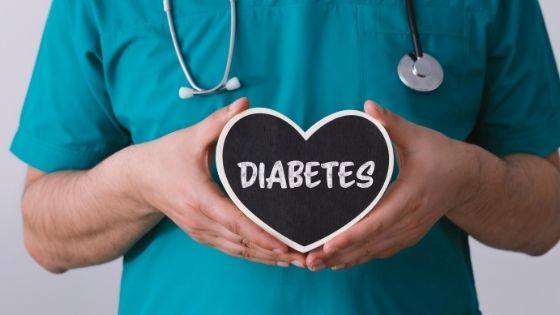Type 2 diabetes, a deadly, chronic illness is life-threatening. It primarily affects adults, but it is becoming more prevalent in children as obesity increases across all age groups. In people with type 2 diabetes, the term “reversing diabetes” usually refers to a considerable continuing improvement in insulin sensitivity.
Several factors cause type 2 diabetes. The most crucial risk aspects are being overweight or obese. Type 2 diabetes is a serious condition. It can, however, be controlled or even reversed with proper treatment. People with type 2 diabetes who can lower their HbA1c to less than 42 mmol/mol (6%) without diabetes medication are said to have reversed or overcome their diabetes. Putting diabetes into remission is another term for this. The loss of body weight can be beneficial in reversing the development of diabetes.
Type 2 diabetes can be reversed with time and effort, and the outcomes can be advantageous, with less fatigue and improved overall health.
Primarily, we have to understand how diabetes progresses
Obesity is the most common cause of type 2 diabetes, which usually follows a vicious spiral pattern:
- Calorie-dense diet, mainly if it’s rich in refined carbohydrates.
- To deal with the fast- and quick-acting carb intake, insulin loads in the bloodstream increase.
- Weight gain is concentrated around the abdomen (central or truncal obesity).
- Consistently elevated insulin levels cause the body’s cells to become insulin resistant, resulting in weight gain.
- Insulin resistance also contributes to weight gain.
- Insulin resistance sources blood sugar levels to increase, particularly after meals.
- To deal with amplified blood sugar levels, the pancreas produces additional insulin.
- Low blood sugar levels cause drowsiness, while high insulin levels cause increased appetite.
- Hunger also contributes to overeating and lethargy, as well as a decrease in bodily movements.
- Overeating, less activity and high insulin levels lead to more weight and increased opposition to insulin.
When the pancreas is forced to generate extra insulin regularly, the insulin producing beta cells in the pancreas are damaged.
Beta-cell damage causes the body to struggle to produce enough insulin, and steeper increases in blood sugar levels cause more noticeable diabetes symptoms, such as thirst and the need to urinate often.
Reversing type 2 diabetes, what works and what won’t
Type 2 diabetes is a long-term condition. Even if you’re in recovery, which means you’re not taking any pills and your blood sugar levels are normal, there’s always the possibility that the symptoms will come back. Some people, on the other hand, can go years without thinking about their blood glucose levels or the health problems that come with diabetes.
So, what’s the best way to reverse diabetes? The trick is usually to lose weight. If you’ve only had diabetes for a few years and haven’t needed insulin, losing weight will help you not only control it but also live a diabetes-free life.
According to research, there are many successful ways to reverse diabetes:
Low-carb diets:
Low-carbohydrate diets are known to reduce the amount of insulin required by the body, leading to less insulin resistance.
At this time, the American Diabetes Association suggests a low-carbohydrate eating pattern but does not specify a grams minimum. On the other hand, a low-carbohydrate diet would recommend eating the same amount of carbohydrates at each meal — about 45–60 grammes — for a total of around 200 grammes per day. It is preferable to consume fewer calories.
A ketogenic diet is advocated by some physicians and scientists to lose weight and control blood sugar levels. Carbohydrates are severely limited in this diet, typically to less than 50 grammes per day.
The body is required to break down fat for food in the absence of carbohydrates. This primes to quick weight loss as well as improvements in triglyceride and blood glucose regulation.
But, there are some drawbacks to this diet, such as:
- Cramps in the muscles
- A lack of vitality
- Poor breath
- Changes in bowel habits
- An increase in cholesterol
Exercising:
Starting an exercise regimen is not only beneficial to your general wellbeing, but it can also assist you in losing weight and reversing your symptoms. Before making a decision, consult your doctor and keep the following in mind:
- Begin slowly. Start with a quick walk if you’re not used to exercising. Increase the duration and strength of the workout gradually.
- Walking rapidly is a perfect way to get some exercise. A brisk walk is easy to do and does not necessitate the use of any specialized equipment.
- Before, during, and after your workout, check your blood sugar.
- If your blood sugar drops when you’re exercising, have a snack on hand.
Bariatric surgery:
This form of surgery aids weight loss by altering the stomach and digestive system to reduce the amount of food you can consume. Apart from helping in weight loss, it can also aid in reversing diabetes in other ways, but scientists aren’t sure why. One hypothesis is that it influences the hormones in your stomach, which help your body regulate blood sugar levels.
According to studies, up to three-quarters of people who undergo bariatric surgery have their diabetes reversed. Gastric bypass and gastric sleeve (also known as sleeve gastrectomy) surgery have better long-term results than gastric banding.
When your BMI is 35 or higher, bariatric surgery is usually an option. It’s better for people who have had diabetes for less than five years and don’t use insulin.
If you’re obese and have just been diagnosed, talk to your doctor about it. There are significant risks involved with surgery. However, the majority of people who get the surgery done get their diabetes reversed.
What Doesn’t Work:
There is nothing as a miracle pill for diabetes reversal. Any product that promises to cure diabetes or substitute your prescription diabetes medication should be avoided. Many illegally marketed products, according to the FDA, are unproven and potentially dangerous, including:
- Supplements for the diet
- Medications available over-the-counter
- Alternative treatments
- Homoeopathic drugs
- Prescription drugs
Conclusion
It is probable to reverse type 2 diabetes, but it necessitates meal preparation, healthy eating, and daily exercise. You may be able to avoid diabetes and its complications if you can do these activities and lose some weight.



















